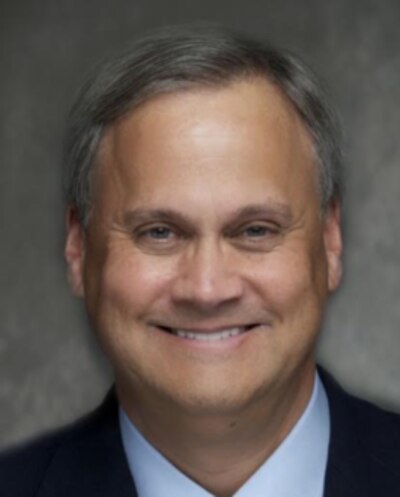With less than a month left to vote for Indianapolis mayor, leaders in the black community are making a last-minute push for a greater focus on education — an issue that has drawn little attention in the quiet, off-year campaign.
Education is one of several priorities a broad coalition of African American religious and civic leaders are calling on Democratic Mayor Joe Hogsett, who is running for a second term, and his Republican challenger, state Sen. Jim Merritt, to address in the days before the Nov. 5 election. Early voting is already underway.
Although the coalition represents groups with differing views on contentious issues, such as school choice, they share deep concerns over disparities in how schools in the city serve black students, compared to their white counterparts. On average, black students are less likely to pass state tests and more likely to be suspended.
“What we need from the mayor is for the mayor to be at the table,” said Tanya Bell, president of Indiana Back Expo and education chair for the African American Coalition of Indianapolis. “I don’t expect the mayor’s office to do anything by itself. We just want the mayor’s office to prioritize the issue and be at the table to help us resolve some of those disparities.”
Bell said it is not yet clear to her how the candidates differ on education, and she hopes she will learn more about their respective positions in the coming weeks. Hogsett and Merritt are expected to present their plans for addressing challenges facing the city’s black community ahead of a debate hosted by the coalition at 6 p.m. on Oct. 21 at Arsenal Technical High School.
The Indianapolis mayor’s role in education is something of a hybrid. The office directly oversees charter schools where he can drive policy, approve new campuses, and close struggling schools. But many of the city’s students attend traditional public schools in the city’s 11 districts, which have independently elected school boards, and the mayor’s impact on those schools is largely confined to the soft power of influence and advocacy.
Education has often been eclipsed in this mayoral campaign by daily concerns of Indianapolis residents, such as potholes, and the fear and frustration that is gripping parts of the city after four years of record-breakingly high criminal homicides.
Crime is an essential issue for Indianapolis, said David Greene, a pastor with Concerned Clergy of Indianapolis, but it’s a mistake to look at it in a vacuum. “If people are undereducated, if people are underemployed, you’re going to have public safety issues,” Greene said. “I want to hear from a mayoral candidate who has enough vision and insight to see that as well.”

Hogsett said his chief accomplishment in education has been the emphasis his office has placed on accountability for charter schools, including regular reviews, and in some cases schools have closed. He has not created as many new charter schools as prior mayors because there were many existing charter schools when he came into office, Hogsett said, but he stressed that he is committed to “charter school opportunity.”
During his term, the city has developed a close relationship with Indianapolis Public Schools as the district built out a network of innovation schools, which are part of Indianapolis Public Schools but also often have charters from the mayor’s office that give them more independence from the district.
Hogsett said that as mayor, he has focused his attention on charter schools because they are the area where he has the most impact and authority.
“Maybe there is more from a purely symbolic perspective that I could and should be doing over schools that I really have no direct influence,” he said. But while local school districts want support from the city when they have problems, they aren’t always interested in advice from the mayor’s office, said Hogsett noting, “it’s kind of a delicate balance that you have to walk.”
Hogsett has been notably silent on some hot-button education issues in the city, including referendums to boost school funding in Indianapolis Public Schools that passed in 2018.
One reason education may not have drawn more attention in the campaign is because it’s difficult to find clear disagreements between the candidates. Both of them support charter schools, one of the most controversial education issues in Indianapolis, with some seeing them as tools for improving education for children of color and others as draining dollars from traditional district schools.

The largest area of disagreement Merritt pointed to was on the city’s preschool scholarship initiative, which Hogsett did not fund in the latest budget. The program, which began in 2015, was designed to spur the state to fund preschool. It was partially successful, and state scholarships now pay for some 4-year-olds from low-income families in Indianapolis to attend preschool. But the state program does not cover 3-year-olds, who will no longer be able to get scholarships.
Merritt said that as mayor he would support bringing the city program back, although he did not know how much money he would commit to it.
When it comes to addressing gaps in passing rates on state tests between white students and students of color, Merritt said that the mayor can be a stabilizing force in students’ lives. “We have a lot of work to do on poverty issues,” Merritt said. “If a student goes to school, and his bus stop is not safe, and he is hungry, or he is homeless, I’m not sure how you learn with those kind of conditions.”
Mark Fisher, chief policy officer for the Indy Chamber, said the amount of attention education has received in the race is logical since most of the city’s schools are overseen by elected school boards — not the mayor. Still, the mayor has an important role in education both through chartering schools and fostering citywide collaboration, Fisher said, explaining that he hopes the next mayor will help broaden the focus on education beyond Indianapolis Public Schools, the state’s largest district.
“Many of our township schools have seen just really dramatic and abrupt demographic and economic changes,” he said. “We need to not just think about and focus on IPS, but what is happening in the township schools as well.”

